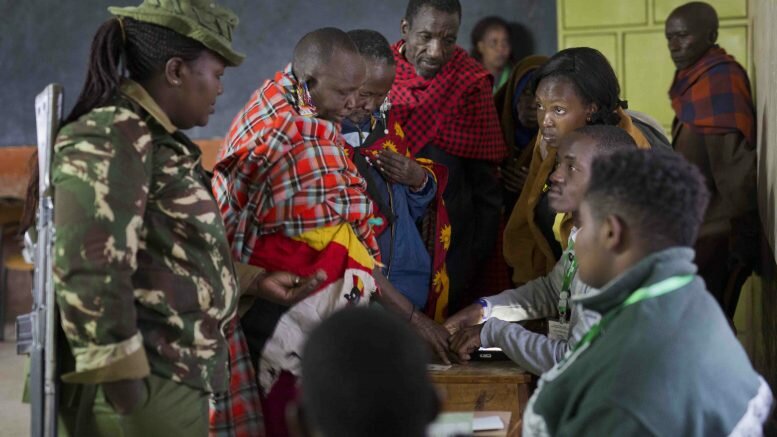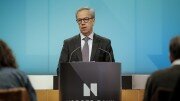At just after 06.00 local time, the first Kenyan voters went to the polls in what appears to be a very close race between President Uhuru Kenyatta and Raila Odinga.
The countdown has begun, and results are expected to be reached in between 24 and 48 hours. The government has a week to deliver the final official result to the nation.
In the election of 2013, President Kenyatta, son of Kenya’s founding father, Jomo Kenyatta, won a landslide victory,garnering as much as 50% of the vote in the first ballot.
Many Kenyans fear that this year’s election will be a bloodbath like that of 2007, when over a thousand people lost their lives in the turmoil after Odinga lost to Mwai Kibaki, the then-serving president. On Monday, Kenyatta encouraged people to go home after casting their vote.
‘After voting, please go home’, Kenyatta said in a televised appearance.
‘Return home and ask your neighbour, no matter where he or she comes from, regardless of their tribe, their colour or religion. Take them by hand, share a meal, and say to them – ‘let’s wait for the results’ – for Kenya will last a long time after this election’, he said.
Fake news
According to the news agency, TT, social media has been flooded with fake news from fraudsters trying to imitate the BBC and CNN. A Portland / GeoPoll survey showed that nine out of ten Kenyans said they’d encountered false, or misleading information.
‘Spreading incorrect information is serious, especially at sensitive times, where there is a danger that it can cause unrest,’ said Professor of Media and Communication Science, Jessica Gustafsson, to TT news agency.
Growth and corruption
Kenyatta, who has launched himself as Kenya’s economic rescue ship, started the election campaign by opening a new railway between the capital of Nairobi and the port of Mombasa. It’s the country’s largest infrastructure project since the end of the colonial era. Under his leadership, Kenya has experienced economic growth of approximately 5% per year.
At the same time, the country’s foreign debt has increased, and Kenyatta has not succeeded in putting a stop to corruption in the country. Nor has the economic growth benefited the country’s poor, according to economic analysts.
© NTB Scanpix / Norway Today





